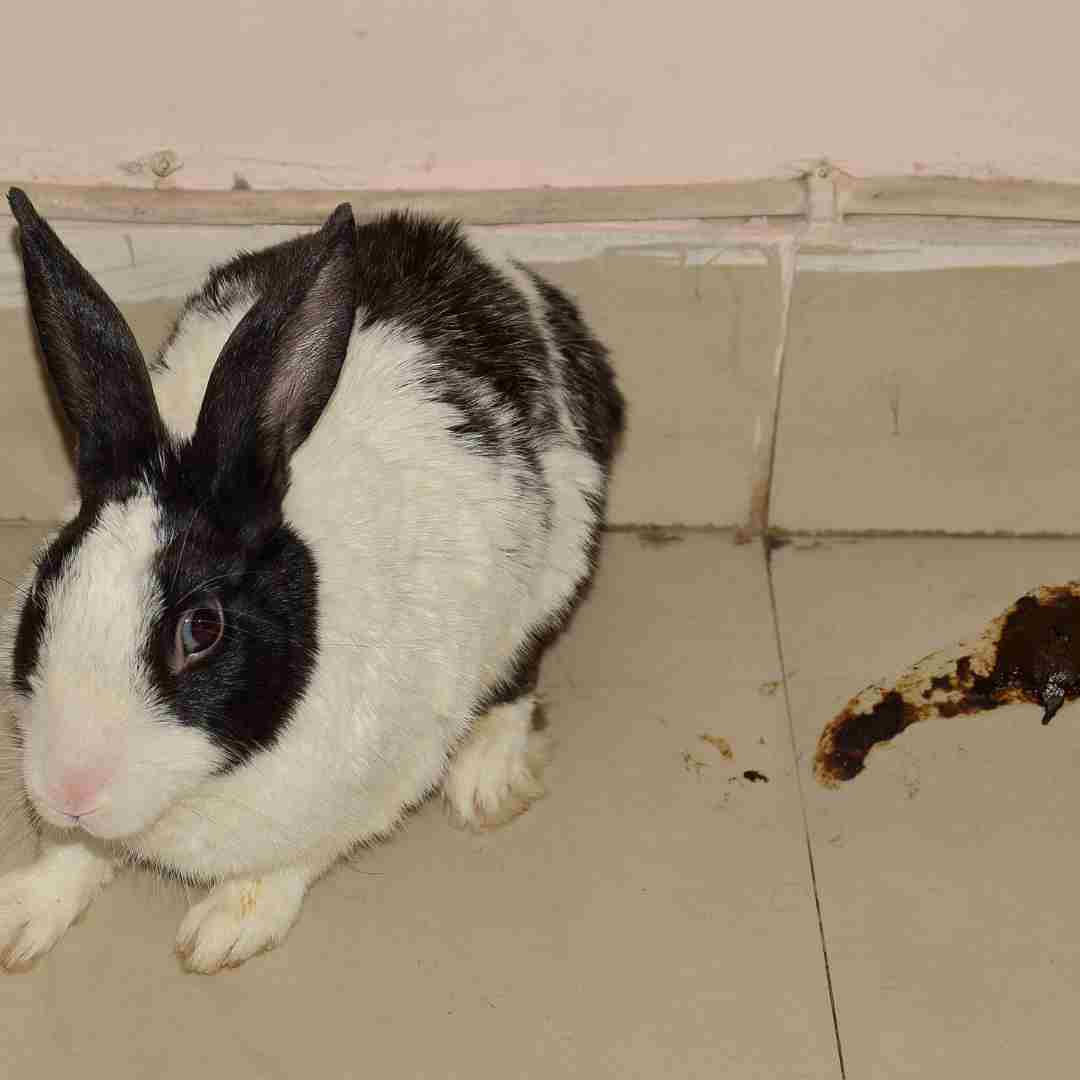How Does Rabbit Poop Indicate Health?
Rabbit droppings reveal rabbit health. Small, spherical, black rabbit droppings are typical. Firm, dry rabbit droppings without mucus or blood are healthy. Soft, wet, mucus- or blood-filled rabbit droppings may indicate a health condition.
Parasites can be found in rabbit droppings. Rabbit droppings with little white or yellowish-white particles may indicate roundworm or coccidia infestation. Mite infestations may be indicated by white powdery droppings.
Diet can be inferred from rabbit droppings. Large droppings with undigested food may indicate that a rabbit is not getting enough nutrients. Small droppings with little to no undigested food may indicate that the rabbit is getting enough nutrients.
Overall, rabbit droppings can reveal rabbit health. A rabbit's odd droppings should be checked by a vet.
Identifying Healthy Rabbit Poop
Rabbit poop indicates health. Round, hard, dark brown rabbit faeces is healthy. Dry and odourless are also ideal.
Rabbit droppings should be around the size of a pea, but vary by size. Larger droppings may indicate a health condition.
Hay and veggies should be in healthy rabbit faeces. This indicates good rabbit digestion. A lack of food particles in droppings may indicate malabsorption or other digestive disorders.
If your rabbit's droppings change size or colour, take it to the vet. This may indicate a health concern that needs treatment.
You can keep your rabbit healthy and happy by monitoring its droppings.
Rabbit Poop Fertiliser Benefits
Rabbit faeces fertilises gardens and lawns well. This organic fertiliser contains nitrogen, phosphorous, and potassium, the three basic minerals for plant growth. Plants benefit from rabbit poop's calcium, magnesium, and other trace nutrients.
Rabbit poop's nitrogen promotes leafy green growth, while phosphorus and potassium enhance root and flower growth. Beneficial bacteria and fungus in rabbit excrement break down organic materials and release nutrients into the soil. This improves soil fertility and structure.
Fertiliser from rabbit excrement is simple. Spread it directly on soil or combine it with compost or other organic debris. Rabbit dung may carry parasites and other pathogens, therefore avoid using it on edible plants.
Rabbit excrement is rich in slow-release nutrients. Rabbit dung does not burn plants or discharge nutrients like artificial fertilisers. Improved soil structure and aeration encourage healthy root growth.
Both fertiliser and mulch can be made from rabbit dung. It keeps soil wet and prevents weeds. Vegetable gardens benefit from rabbit excrement mulch, which improves soil structure and fertility.
Rabbit faeces fertilises gardens and lawns well. Natural, organic fertiliser with critical nutrients and helpful bacteria and fungi. Easy-to-use rabbit dung improves soil structure and fertility. It provides slow-release nutrients and can be mulched.
How to Compost Rabbit Poop
Rabbit excrement compost makes rich garden soil. Rabbit faeces is rich in nitrogen and phosphate, making it great for composting. Tips for composting rabbit poop:
1. Collect rabbit dung in a container. Cover the container to prevent bugs and odours.
2. Put rabbit dung in compost. You should mix it with leaves, grass clippings, and vegetable leftovers. This helps balance compost.
3. Keep the compost pile moist but not waterlogged. Add water as needed.
4. Turn the compost pile often to keep it aerated and break down materials.
5. Check compost pile temperature. Warm composting is 140-160 degrees Fahrenheit.
6. Use completed compost to enhance garden soil.
Rabbit excrement compost makes rich garden soil. You may simply turn rabbit excrement into a garden asset with the appropriate steps.
Rabbit Poop Signs of Diet Quality
When assessing rabbit droppings for food quality, various criteria must be considered. First, consider decreasing size and shape. Healthy rabbit droppings are spherical and firm, about the size of a pea. If rabbit droppings are huge, it may not be digesting its food.
Droppings colour matters too. Normal rabbit droppings are dark brown. If rabbit droppings are too light or dark, it may not be getting enough nutrients.
Droppings uniformity matters too. Dry, granular rabbit droppings are healthy. Too moist or dry droppings may suggest that the rabbit is not getting enough water.
Finally, consider the droppings' fragrance. Healthy rabbit droppings smell earthy and mild. If the rabbit's droppings smell bad, it may not be getting enough nourishment.
Consider all of these elements to assess a rabbit's nutrition quality. If any of the following criteria are abnormal, visit a veterinarian to verify the rabbit is properly nourished.